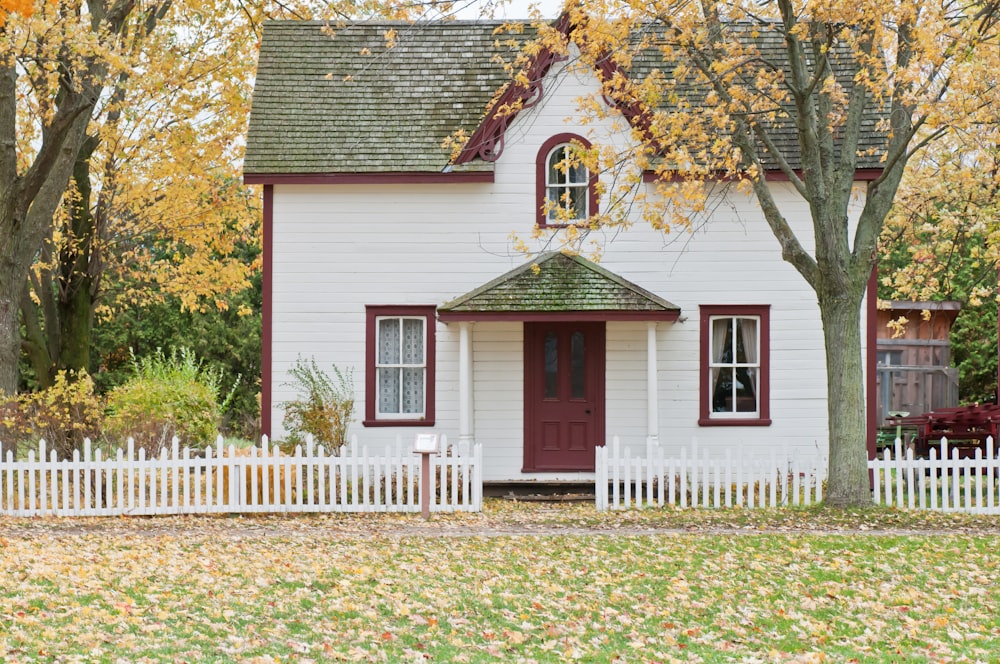Millennial homeownership is down compared to previous generations, mainly due to debt. Buying a home is one of the biggest financial decisions you will make, and there are both benefits and downsides to homeownership.
If you think you’re ready to buy a home, there are some questions you should ask to help offset some hidden costs. It’s best to be fully prepared before starting the home buying process.
Homeownership isn’t just about finding the right house price, a great location, and good schools. Many other factors include everything from utility costs and available services to even the types of pets you have. Being informed about insurance, finances, and other general areas is important before jumping into home ownership.
Insurance Questions
Homeowners insurance is a must when buying a new home. It will protect your financial future if something happens to the home. Homeowners’ insurance premiums can vary greatly depending on location, pets, the cost of the home, and any extra insurance you may need.
Are pets a factor?
You’ll want to consider if you will have any pets living in the home. This includes getting a pet after purchasing the home. You will need insurance to protect your family from lawsuits if your pet causes damages or injuries to others.
For dog owners, it’s important to understand insurance dog breed restrictions. Most homeowners insurance will insure dogs, but certain breeds may be more difficult to insure. It’s legal for insurance companies to raise rates for certain breeds of dogs and restrict certain breeds.
Insurance is vital to protect you from a lawsuit if there are any injuries or damages from a dog. Make sure you compare quotes online or consult with an insurance agent to find the cheapest and most affordable homeowners insurance policy possible.
How much will the homeowner’s insurance cost?
If you have neighborhoods or areas where you might look for homes, it’s important to know how much homeowners insurance will cost in that area. Insurance premiums can vary by location, county, and ZIP code.
You can get some quotes or look online for information about homeowners insurance rates. A real estate professional, realtor, or mortgage officer can recommend an insurance agent or broker to help you find this information.
Will I need extra insurance?
There are certain instances where you may need to pay an extra deductible or add coverage to your homeowner’s insurance policy. It could be due to something in the home or located at the home. It could also be because of damages that might occur based on location.
For example, if you have a pool, you may need extra liability insurance to protect you from legal issues if someone is injured on your property. Coastal communities may need extra hurricane or windstorm coverage. Some homeowners will need flood insurance if they live in a flood zone or area more likely to flood.
You may also need an extra policy to cover expensive jewelry, firearms, or other prized possessions. A homeowners policy usually has a maximum amount of coverage, and expensive items may not fall under the policy coverage.
General Questions to Ask About Buying a Home
In addition to asking yourself questions about insurance, you will also want to ask yourself general questions about your budget, your longevity in the home, finances, and what you are looking for in a potential home. From setting a budget to choosing a location, there are many tips for first-time homebuyers that can help you be well prepared for this process.
What’s my financial stability?
Your finances should be stable before you purchase a home. Your and any other borrower’s credit score can greatly affect your home purchase. In some areas, it may also be more cost-effective to continue to rent rather than to buy a home.
Credit card debt can be negative when buying a home because they make you a higher-risk customer. Too much credit card debt can derail a home purchase because you have less available money to be able to afford a mortgage payment on top of the debt.
You also may not qualify for the same size loan if you didn’t have the debt because your debt to income ratio is less preferable to mortgage companies. Auto loans, student loans, and personal loans can also factor into the amount you are able to borrow for a home purchase.
Your budget should not be what the bank tells you that you can borrow, but what you can actually afford. A monthly mortgage payment can also include the yearly taxes and home insurance premiums. The property taxes can vary greatly by county, so look at the cost of the property taxes while looking for a home.
Don’t forget about the monthly utility costs. What counts as a utility bill? Monthly costs like water, sewer, trash, Wi-Fi, and cable are considered utilities; auto and home insurance usually are not. Some homes may also have a monthly or yearly homeowners’ association (HOA) fee that you are required to pay.
You should also have enough saved for a down payment. Down payments can vary based on the type of loan, but a bigger down payment saves you more money in the long run. There are also closing costs you will have to pay that may dip into your savings.
How long will I stay here?
It’s important that you are in a stable place before you purchase a home. If you think you may change jobs or careers or think you may want to move within a few years, purchasing a home might need to wait.
There is no rule on how long you should live in a home before selling. The real estate market can fluctuate, but selling a home soon after purchasing usually results in a loss of money. There may also be tax implications if you sell a home for a profit in the short term.
What area do I like?
You’ve heard the term “location, location, location,” which can also apply to purchasing a home. There are a number of suggestions on where to buy a home, especially if it’s your first home purchase.
You will want to consider the areas or locations you prefer before settling down into homeownership. Things to think about include your or your partner’s commute to work, where you like to go in your free time, and if you prefer the city or the country.
How much space do I need?
This is an important consideration to help narrow down homes that have the space you want that are also in your price range. How many bedrooms and bathrooms do you want? Do you need space for a home office?
You’ll also want to consider the yard space, outdoor space, and driveway. If you have multiple cars to park, make sure there are ample garage or driveway spaces or if you will use street parking.
Do I have money to pay for repairs?
Owning a home is a big responsibility. There are always things that break or need repair in a home. It may be something small like a broken doorknob or it could be something big like a broken water heater or a major water leak.
While renting, the landlord or homeowner takes care of these repairs. When it’s your own, it’s all on you. You should either have funds set aside for repairs or have enough money in savings to pay for any major repairs.
Some minor repairs may just require watching a video if you are good at the do-it-yourself tasks. For other repairs, you may need to call in a professional, which can get expensive.
Do I need to think about school districts?
If you have children, you will also want to consider the school districts. Homes may be more expensive in high-quality school districts.
There are many rating systems online. You can also ask other parents in the neighborhood or your real estate professional for advice. If you find a home in a less than desirable school district, you may also consider a charter or private school.
When can I move?
If you are currently in a lease or renting, you will want to figure out the timing of your move. This will affect your closing date, which you will need to have in mind when you are ready to put an offer on a home. Moving can also be very stressful, so it’s important to be prepared before you move to ensure a smooth and easy move to your new home.
Ask Yourself These Questions
These questions are helpful before you consider if buying a new home is the best decision for you and your family. You will want to consider many factors like insurance, finances, longevity, stability, and your preference before you embark on the home-buying process.
Melissa Morris writes and researches for the insurance comparison site, USInsuranceAgents.com. She is a college professor and has over 10 years of experience with homeownership in multiple states.
Published by HOLR Magazine.




